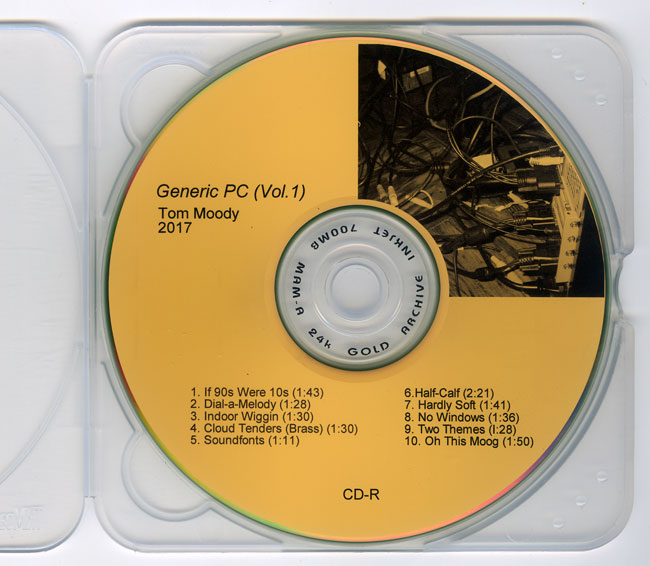In our recent mutual interview St Celfer (John Parker) explained a new performance instrument he was working on:
...I’m making music in real time (as opposed to tracking and then arranging) by using an instrument, homemade, or more accurately, “gambiarra,” in Brasilian Portuguese, to be played and heard live. I want to transition from an in-studio process to a live and improvised situation. I will be performing or, in other words, responding, in the moment to the actions I am making, rather than looking backwards and taking the best from pre-recorded material and re-composing it. In the 2004 interview I aspired to make new sounds or music, etc. Now I would substitute “explore” for “make.” Trying for “the new” is understood but “how” is more important.
The instrument’s creation is, itself, an exploration. I can never quite wrap my head around it. I am enjoying being lost. I travel step by step, try a decision, usually walk back, then forward again, on each sound generating component. My energies have gone into the creation of the interface between man and machine. It's a monster getting larger by eating itself.
For instance, there are midi converters, which only understand perfectly tuned chromatic input. There is a theremin component, which can be tuned to doric instead of chromatic scale for some added drama. Meanwhile two CD turntables that I scratch are manually wired into the same midi note converters. Cramming two input devices together makes more output unpredictability, with overloaded notes dropped.
The "gambiarra," now called Step.4D™, has reached a stage of completion where Parker could begin performing on it. Recordings (and some additional explanation) can be found on his website. He has been too prolific for me to keep up with all the recorded performances but I made some notes on a single piece, "STC.lives.solo12.2.9.21" [Soundcloud link] to try to convey the flavor:
A lazy description might be dark ambient or punk ambient but I think of ambient as minimal work ("a tint" to use Eno's phrase) and St Celfer's is more substantial.
"STC.lives.solo12.2.9.21" is atmospheric but has structure. There are two distinct movements. The first half could be a loose jazz ensemble (Parker's work has been compared to Bitches Brew-era Miles) riffing on simple notes with digital, time-stretching fillips and enhancements; the second half is more drone-y and builds to a dense, chord-like timbre.
It must be emphasized that this isn't a band and there is no post-production reassembly: it's one person playing a multi-faceted, self-feedbacking instrument, and it's all done with a single pass. Yet it sounds like group activity.
If I had to venture an electronic music precedent I might say Tod Dockstader. The official Kenneth Goldsmith/Ubuweb narrative about Dockstader is that he was music production guy who taught himself tape music in the early 1960s and "was denied access to the major electronic music centres because of his lack of academic credentials." Dockstader self-released his own music and eventually acquired a rep and entered the canon. Dockstader used the term "organized sound" and that's what St Celfer's "STC.lives.solo12.2.9.21" reminds me of. There are similarities in timbres and moods. But whereas Dockstader was all about slow, painstaking studio assembly of multitracked sounds in a continuous-sounding flow, St Celfer makes the work in a single take. The "assembly" is making an instrument that creates its own variables and accidents and conveys an impression of dense multitracking.

